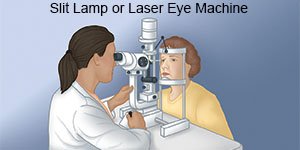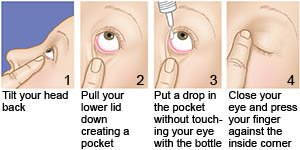Scleritis
Medically reviewed by Drugs.com. Last updated on Apr 6, 2025.
What is scleritis?
Scleritis is severe pain, tenderness, swelling, and redness of the sclera. The sclera is the white part of your eye. Scleritis can develop in the front or back of your eye. You may have scleritis in one or both eyes. Scleritis is not contagious.
What causes scleritis?
The most common cause is an underlying autoimmune disease. Some examples include lupus or rheumatoid arthritis. These conditions can cause many of the symptoms of scleritis. In rare cases, scleritis may be caused by an infection from a fungus or parasite.
What increases my risk for scleritis?
- Joint swelling and stiffness due to arthritis
- Inflammatory bowel disease
- Sjögren syndrome
- Granulomatosis with polyangiitis
What are the signs and symptoms of scleritis?
- Pain that can be severe
- Redness and swelling of the white part of your eye
- Bumps on your sclera
- Watery eye
- Severe sensitivity to light
- Decreased or blurry vision
How is scleritis diagnosed?
Your provider will ask you about your overall health. You may need any of the following:
- A slit-lamp exam may be used to check your eye. A slit-lamp is a type of microscope for your eyes.

- Blood tests may be needed to check for infection or immune system function.
- An ultrasound uses sound waves to show pictures on a monitor. An ultrasound may be done to show if scleritis is in the back of your eye.
- A sample of your sclera may be needed. This is called a biopsy.
How is scleritis treated?
Treatment depends on the type of scleritis you have. You may need any of the following:
- Medicines:
- Steroid medicine to decrease inflammation.
- NSAIDs , such as ibuprofen, help decrease swelling, pain, and fever. This medicine is available with or without a doctor's order. NSAIDs can cause stomach bleeding or kidney problems in certain people. If you take blood thinner medicine, always ask your healthcare provider if NSAIDs are safe for you. Always read the medicine label and follow directions.
- Antibiotics to prevent or treat an infection.
- Surgery may be needed if your scleritis is severe. Surgery may help fix any damage to your eye and help prevent vision loss.
How can I manage my symptoms?
- Apply a cool compress. Wet a washcloth with cold water and place it on your eye. This may help decrease swelling and irritation.
- Do not wear contact lenses until your provider says it is safe to use them again.
- Wear sunglasses outside to help decrease pain from bright light.
- Do the following if you use eye drops:
- Wash your hands before and after you put in eye drops.
- Gently shake the bottle.
- Do not touch the tip of the bottle to your eye. Germs from your eye can spread to the medicine bottle.
- Tilt your head back and pull down your lower eyelid with your index finger.
- Gently squeeze the bottle to drop the correct number of drops into your eye. Wait at least 5 minutes between each drop.
- Close your eyes. Press your index finger against the inside corner of your eye next to your nose for 1 minute.
- If you use more than one kind of drop, wait 10 to 15 minutes before you use the second one.
- Gently wipe away any extra liquid with a tissue.
- Replace the cap on the bottle.
- Do not rub your eyes.

When should I seek immediate care?
- You have vision loss.
When should I call my doctor or ophthalmologist?
- Your vision gets worse, even after treatment.
- You have new or worsening eye pain.
- You have questions or concerns about your condition or care.
Care Agreement
You have the right to help plan your care. Learn about your health condition and how it may be treated. Discuss treatment options with your healthcare providers to decide what care you want to receive. You always have the right to refuse treatment. The above information is an educational aid only. It is not intended as medical advice for individual conditions or treatments. Talk to your doctor, nurse or pharmacist before following any medical regimen to see if it is safe and effective for you.© Copyright Merative 2025 Information is for End User's use only and may not be sold, redistributed or otherwise used for commercial purposes.
Further information
Always consult your healthcare provider to ensure the information displayed on this page applies to your personal circumstances.
